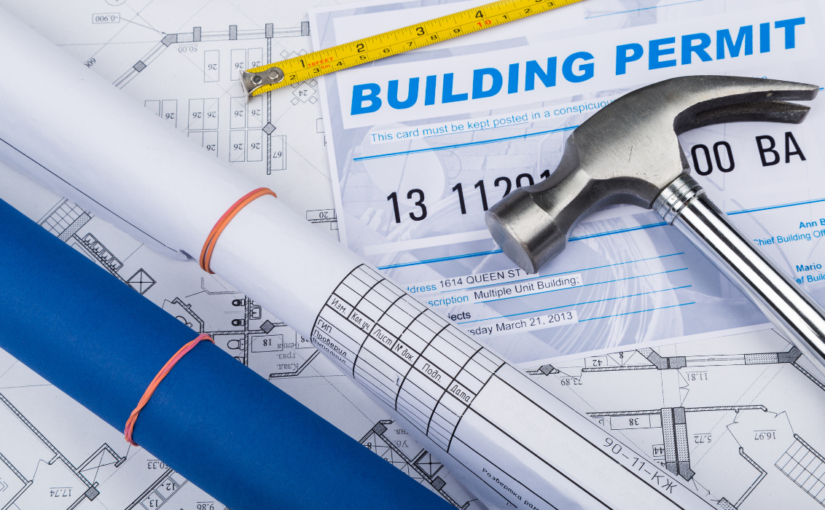back
Navigating Permitting and Zoning Issues in Ground Up Construction Financing
04-2023

Financing for new building can be challenging because of the many permits and zoning concerns involved. Understanding these standards is crucial if you want to keep your project on schedule and on budget. In ground-up construction financing, this article will go through some of the important factors to take into account.
Permitting Requirements for Ground-up Construction Financing
Understanding the local laws and regulations governing construction projects is the first step in acquiring permits. Usually, the city or county where the project is located creates these rules. The following are some vital permitting criteria you need to be aware of:
- Building Permit: Any substantial construction project, including construction from scratch, often needs a building permit. Making ensuring the facility conforms with all relevant building norms and regulations is the goal of the building permit. Detailed building plans and specifications, a site plan, and elevation drawings are normally required for the permit application.
- Electrical Permit: When putting in or changing the building’s electrical systems, a permit is needed. A qualified electrician is normally required to complete the work and offer an inspection afterward in order to obtain an electrical permit.
- Plumbing Permit: When putting in or changing the plumbing systems in the building, a plumbing permit is necessary. Plumbing permits, like electrical permits, often call for a licensed plumber to carry out the work and conduct an inspection once it is finished.
- Mechanical Permit: When putting in or changing HVAC systems or other mechanical equipment in the building, a mechanical permit is necessary. A licensed contractor is normally required to carry out the work and conduct an inspection after it is finished for mechanical permits.
- Environmental Permit: A permit for the environment can be necessary, depending on the project’s location and size. Projects that might have an influence on wetlands, wildlife habitats, or other environmentally sensitive regions often need environmental licenses.
Zoning Requirements for Ground-up Construction Financing
Ground-up construction finance necessitates taking into account zoning rules and regulations in addition to the permitting needs. The usage and development of land in a certain area is regulated by zoning rules. Following are some vital zoning regulations to take into account:
- Zoning Districts: Different zoning districts are often established by zoning rules to specify the permitted uses for land in a certain location. For instance, single-family residences may be the only permitted structures in residential zoning districts, but restaurants, retail outlets, and other commercial uses may be permitted in commercial zoning districts.
- Setback Requirements: The distance that the building must be set back from the property lines is specified by setback standards. These specifications aid in preventing buildings from being too near to adjacent properties, which may affect privacy and other quality-of-life issues.
- Height Restrictions: Height limitations place a cap on how tall structures can be built in a given location. These limitations aid in ensuring that structures are in keeping with the surrounding environment and do not detract from the unique character of the area.
- Parking Requirements: The number of parking spots needed for a specific building type or usage is specified in the parking requirements. These specifications aid in ensuring that there is enough parking to accommodate clients and staff while reducing traffic congestion.
Navigating Permitting and Zoning Issues in Ground-up Construction Financing
It can be challenging to navigate zoning and permitting concerns when financing new construction, but there are a few things you can do to make the process go more quickly:
- Hire an Experienced Contractor: Hiring a skilled contractor who has completed projects comparable to yours in the region is one of the best things you can do to navigate the permits and zoning process. A contractor who is familiar with the neighborhood’s laws and rules can assist in making sure that all required licenses and approvals are acquired quickly and effectively.
- Work with a Real Estate Attorney: An excellent tool for understanding the permitting and zoning procedure is a real estate lawyer. An attorney may assist in reviewing the permits and zoning specifications, settling disputes with local government representatives, and making sure that all legal criteria are satisfied.
- Plan Ahead: When it comes to zoning and permitting challenges in funding for new building, preparation is essential. When creating the schedule and budget for your project, be sure to account for the time and expenses involved in acquiring the required permissions and approvals. To make sure that all conditions are satisfied prior to starting construction, you should also work closely with your contractor and lawyer.
- Be Proactive: Last but not least, be proactive in resolving any zoning or permitting concerns that may emerge throughout the construction process. Maintain regular contact with the local authorities and respond quickly to any issues they may raise. By being proactive, you may save expenses and delays while keeping your project on schedule.
In ground-up construction financing, navigating regulatory and zoning issues can be a difficult procedure. However, you may speed up the process and prevent delays and additional expenditures by being aware of the crucial requirements and working with knowledgeable experts. To guarantee a successful construction project, keep in mind to plan ahead, be proactive, and seek the knowledge of contractors and real estate attorneys.
F2H Capital Group is a debt advisory firm specializing in negotiating the best terms for your commercial real estate projects. The company offers a range of financial products and services, including fixed loans, bridge loans, and construction loans across all asset types. Please contact us for any of your financing needs.

